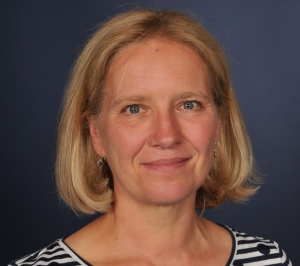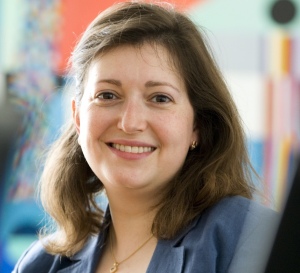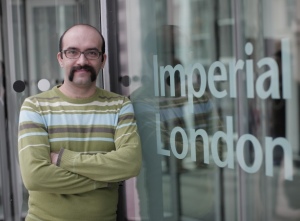Imperial celebrates 2014 academic promotions

Imperial has recognised the research and teaching successes of many of its academics with the 2014 round of promotions.
Ninety seven people at the College have been promoted in this year’s round, which was officially announced this month. These promotions acknowledge the achievements of staff from the Faculties of Medicine, Engineering and Natural Sciences, the Business School and the Centre for Co-Curricular Studies.
A full list of the 2014 academic promotions can be found on the College Secretariat website.
Below, we talk to four newly promoted staff – Professor Julian Jones, Professor Uta Griesenbach, Dr Annabelle Gawer and Dr Vahid Shahrezaei - about their work, their motivations and what inspires them.
Professor Julian Jones, Department of Materials
Julian Jones has been appointed Professor of Biomaterials. He designs and makes new materials that can repair diseased and damaged tissues by stimulating the body's natural healing mechanisms. For example, he has developed temporary scaffolding that can attract stem cells and provide templates for bone and cartilage repair.

Professor Julian Jones
Some of his work is based on Bioglass - a special glass that can bond with bone and dissolve, releasing ions that act like drugs, switching on stem cells to repair bone. Professor Jones and his team are also developing glass that is as fine as cotton wool, which can be used as a cancer treatment for healing wounds.
Professor Jones said: “This promotion could have a real positive impact on my research because it will raise my profile in the wider research community. Being a Professor enables me to be in a position to lead large consortia of researchers from other disciplines, including those who are top of their fields at other universities.”
PROFESSOR Uta Griesenbach, National Heart & Lung Institute
Uta Griesenbach has been promoted to Professor of Molecular Medicine. Her research is related to the development of gene therapies for cystic fibrosis and other diseases. She is also a lecturer, tutor and supervisor to students from BSc to PhD level, and has taken part in many public engagement events such as the Imperial Festival.

Professor Uta Griesenbach
She gave three pieces of advice for those starting their careers in academia. “There can’t be many jobs that are so varied and fulfilling. Although we all sometimes complain about funding, workload and so on, remember to appreciate what an exciting career academic research is.
“Find a good mentor and have chats regularly. Also, be aware of the criteria for promotion at an early stage to have enough time to build up your CV,” she said.
Dr Annabelle Gawer, Imperial College Business School
Dr Annabelle Gawer has been promoted to Associate Professor in Strategy and Innovation. Her research focuses on how digital platforms such as Google and Facebook have developed and their impact on innovation in a global, connected and fast-paced economy.

Dr Annabelle Gawer
Drawing on her own career development, Dr Gawer believes that senior women in academia can play an important mentoring and inspirational role for junior academics, and she plans to continue guiding and supporting other female colleagues in her new role.
“I am really excited about my promotion and the fact that my research has been recognised in this way. During my career I have been fortunate to be inspired by many female colleagues. These include my co-author Rebecca Henderson who is now a Professor at Harvard and Professor Dorothy Griffiths, former Dean of the Business School, whose door was always open. I have also been influenced by many other women who were ready to share their passion, intelligence and generosity. I have mentored junior women faculty for several years and this is a role I plan to develop further.”
Dr Vahid Shahrezaei, Department of Mathematics
Dr Vahid Shahrezaei has been promoted to Senior Lecturer. His teaching at the College focuses on Biomathematics, which brings together the techniques and approaches of biology and mathematics.

Dr Vahid Shahrezaei
Dr Shahrezaei is currently interested in exploring the underlying design principles that ensure cells perform functions, such as growth and reproduction, effectively. He uses computer modelling and mathematical analysis to, for example, determine what switches mating processes in cells on and off.
For researchers just starting out on their academic career, Dr Shahrezaei advises them to be focused and follow their personal research interests where they feel their expertise could have most impact: “It can be really hard when you’re first starting out, you feel under pressure to say yes to all research opportunities and collaborations. My one piece of advice to someone who has just finished their PhD is to try and be selective in spending your time. Learning early to say no is quite a good skill; it allows you to optimally use your time on the science that you are passionate about and it will hopefully ensure you progress in your career.”
Article text (excluding photos or graphics) © Imperial College London.
Photos and graphics subject to third party copyright used with permission or © Imperial College London.
Reporter
Maxine Myers
Communications Division
Colin Smith
Communications and Public Affairs
Sam Wong
School of Professional Development